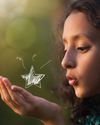
The concept of sustainability was popularized in the Brundtland Report, published in 1987. This document, which was also referred to as Our Common Future, was elaborated for the United Nations in order to warn the world about the negative environmental consequences of economic development and globalization, with the aim of offering solutions to the problems arising from industrialization and population growth.
The concept of sustainability aims at achieving global wellbeing for present and future generations. In the report, the means to achieve that goal were provided and detailed around three essential pillars:
1. Environmental protection
2. Social development
3. Economic growth
It was on 1 January 2016, that the 17 Sustainable Development Goals (SDGs) of the 2030 Agenda for Sustainable Development – adopted by world leaders in September 2015 at an historic UN Summit – officially came into force: a call to action to protect the planet and guarantee the global well-being of people.
Although the concept of sustainability was acknowledged by the world community back in the 1980s, and despite the fact that global awareness of sustainable development has been growing over the years, actual tangible results still fall short of any of the set goals.
Why is it so? One possible explanation is our lack of a sense of urgency.
As a species, do we realize that the crisis we face is unprecedented and represents potentially the greatest challenge humanity has ever faced? Do we realize that the impact on each one of us, i.e. individuals, families, communities and ultimately nations, is absolutely key to shaping our collective destiny?
Esta historia es de la edición October 2019 de Heartfulness eMagazine.
Comience su prueba gratuita de Magzter GOLD de 7 días para acceder a miles de historias premium seleccionadas y a más de 9,000 revistas y periódicos.
Ya eres suscriptor ? Conectar
Esta historia es de la edición October 2019 de Heartfulness eMagazine.
Comience su prueba gratuita de Magzter GOLD de 7 días para acceder a miles de historias premium seleccionadas y a más de 9,000 revistas y periódicos.
Ya eres suscriptor? Conectar

A Flower from THE HEAVENS
November 14 is Children's Day. This year, SARA BUBBER brings to you a world of forests, magical flowers, festivals, and some animals you may have never seen.

Meeting Phenomenal Women
The author, CHITRA BANERJEE DIVAKARUNI, is interviewed here by TARA KHANDELWAL and MICHELLE D'COSTA about her books on mythology, like The Palace of Illusions, which is a retelling of the Mahabharata from Draupadi's point of view, and The Forest of Enchantments, which is a retelling of the Ramayana, from the eyes of Sita. And there's The Last Queen, which is about Rani Jindan's life.

HERBAL TOOTH POWDERS: Rediscovering Ayurveda's Natural Secrets
SRAVAN BANDA presents a natural herbal tooth powder, offering a holistic approach to oral hygiene, harnessing the power of medicinal herbs.

The Dance of Light and Shadow Lessons from the Dolomites
ALAIN DESVIGNE explores the Dolomites, listed as a UNESCO World Heritage Site in 2009.

FINDING OUR WAY
A Polynesian Explorer's Journey of Discovery

The First Imprint: Understanding PTSD
CHRISTIANNA DEICHMANN is the Director of Education at the Association for Pre and Perinatal Psychology and Health (APPPAH), where she educates both professionals and parents on fostering the most nurturing environments for welcoming new life into the world.

The Tipping Point
In this final conversation of the series, J. FREDERICK ARMENT continues to talk with CHRISTINE JONES about promoting peace in the world.

UNLOCK YOUR POTENTIAL
Take The Brighter Minds Path To Cognitive Development

The Intrinsic Goodness of the Heart
DAAJI shares some thoughts on heartfelt acceptance and all it has to offer. He says, \"It is the heart's intrinsic goodness that allows us to accept everything as part of us.

How Does Fear Affect Our Roles as Mothers? - Neelam Shivhare explores some of the great ancient texts of India on motherhood, compares the behavior of Kaikayi and Yashoda
Neelam Shivhare explores some of the great ancient texts of India on motherhood, compares the behavior of Kaikayi and Yashoda, and realizes the importance of removing fear from our hearts in order to nurture our children.For young women like myself, who are future mothers, I trust we are on the path of becoming selfaware and brutally honest with ourselves. We are creative beings, never forgetting the gifts with which we have been bestowed— the love and tenderness, natural instincts, and intuition to feel the right path. It all lies in the mysterious meanderings of the heart. Are we really listening to our hearts, or confusing the bombarding information on social media with reality?